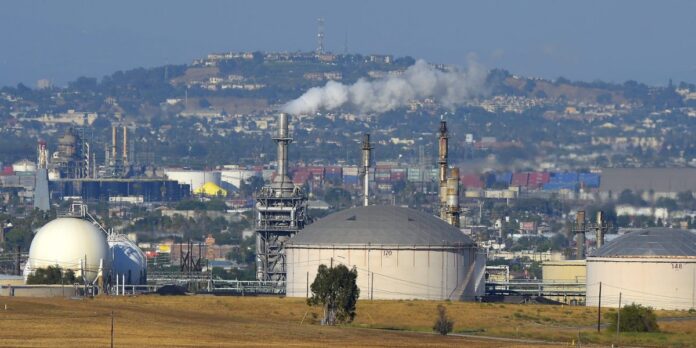Phillips 66, an oil company, has announced its plan to close a refinery in the Los Angeles area by the end of 2025, citing market concerns.
According to California’s Energy Commission, this refinery represents about 8% of the state’s refining capacity. The company stated that they will continue to operate in California.
CEO Mark Lashier mentioned in a statement, “With the long-term sustainability of our Los Angeles Refinery uncertain and affected by market dynamics, we are working with leading land development firms to evaluate the future use of our unique and strategically located properties near the Port of Los Angeles. Phillips 66 remains committed to serving California and will continue to take the necessary steps to meet our commercial and customer demands.”
The closure will affect 600 employees and 300 contractors involved in operating the refinery, the company indicated in a news release. The refinery comprises two facilities that were constructed over a century ago.
This decision comes shortly after Governor Gavin Newsom signed a law aimed at preventing sudden gas price spikes at the pump. The law empowers energy regulators to mandate refineries to maintain a specific level of fuel in stock to prevent abrupt price hikes when refineries undergo maintenance.
Phillips 66 clarified that the closure was not influenced by the new law and mentioned their support for the state’s efforts to maintain required levels of fuel to meet consumer needs.
Aside from this refinery, the company also operates another one near San Francisco, representing about 5% of California’s refining capacity. The Phillips 66 Santa Maria refinery, located about 62 miles (100 kilometers) northwest of Santa Barbara, was shut down in 2023 as part of the company’s plans to convert its San Francisco-area site into “one of the world’s largest renewable fuels facilities.”
Governor Newsom has been pushing for oil and gas regulations and has emphasized California’s leadership in climate initiatives. The state has passed policies in recent years to gradually phase out the sale of new fossil fuel-powered lawn mowers, cars, big rigs, and trains.






